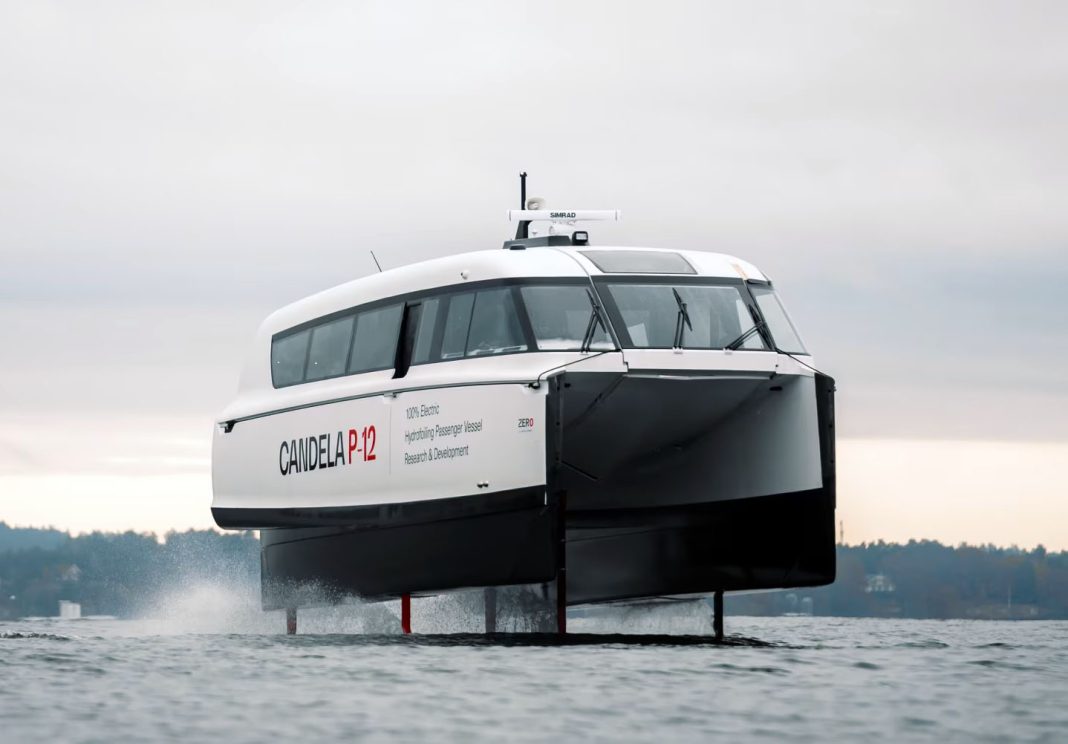After completing successful flight tests, the world’s first electric flying passenger vessel Candela P-12 enters serial production in Stockholm. The world’s fastest electric passenger vessel is anticipated to cut operational costs by 50% compared to diesel vessels, speeding up the shift to sustainable transportation on water. On its inaugural route, it will slash commuting times in half, thanks to an exemption from speed limits.
In a breakthrough advancement for sustainable maritime transport, Swedish tech company Candela Technology AB announced that Candela P-12, the world’s first electric hydrofoiling passenger vessel, has successfully completed test flights in Stockholm. It is now progressing into serial production at Candela’s Rotebro factory.
First announced in concept form in June 2022, the P-12 employs computer-guided hydrofoils to lift its hull above water friction. When foilborne at speeds over 18 knots, Candela P-12 consumes 80% less energy than traditional high-speed vessels.
This innovation addresses the primary challenges that have hindered the widespread adoption of electric, fast vessels to date: limited range and slow speeds due to the excessive energy consumption of conventional hulls.
During its first flights, Candela P-12 confirmed its top speed of 30 knots, a record for electric passenger vessels.
With a range of up to 50 nautical miles, it is also the first electric ship with the practical endurance to cover most coastal transport needs.
Tests also confirmed the minimal wake, which opens up for exemptions from speed limits, as the P-12 will neither erode coastlines nor damage docks and moored ships, even at full speed.


